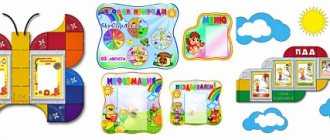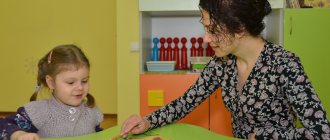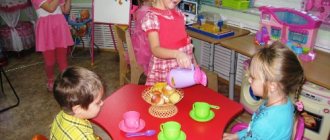Three generations of Federal State Educational Standards: what is changing
It is customary to divide the Federal State Educational Standard into three generations.
First generation - 2004-2009
There were no Federal State Educational Standards as such yet - there were state educational standards that became irrelevant, since the substantive result was put at the forefront. No attention was paid to the personality of the students. The basis was the information required to study, and the requirements were given both for manuals and for topics within them.
Second generation - 2009-2020
These Federal State Educational Standards were in effect until 2022. Here, the main ones are universal learning skills: independent study of information, communication, project and extracurricular work. The emphasis was on the personality of the child, who must respect the country, be tolerant, and lead a healthy lifestyle.
Third generation - from 2022
The official transition to the new Federal State Educational Standards will take place in September 2021. The emphasis is on clarifying the requirements for students. Until now, the documents included only general recommendations: the school itself could determine when and what to study. The programs differed, and it was difficult to evaluate the results: it seems that the Unified State Exam is the same for everyone, but some people lack the necessary knowledge.
The requirements of the third generation Federal State Educational Standard contain:
- clear obligations of kindergartens, schools, universities to students and their families;
- a list of student skills within school disciplines - solving, proving, operating with concepts, as well as recommendations for developing these skills;
- specific results that the student must achieve - how many words to learn in a year, what essays to write;
- instructions on what knowledge the child needs to master at what point - and it is not recommended to change the content of the topics;
- the time required to implement basic educational and educational programs;
- data on correctional work with children with disabilities.
The new standards assume that the school takes into account the characteristics of each student: both psychological and age-related. It is expected that the burden on children will decrease. It is likely that the new Federal State Educational Standards will change the educational system and specify its objectives.
How are Federal State Educational Standards applied in practice?
In order to comply with the necessary requirements, the school needs to develop a basic educational program (BEP) with a curriculum, programs of academic subjects, courses, disciplines, as well as assessment and methodological materials for them.
The teacher must draw up a work program and conduct lessons in accordance with the requirements of the Federal State Educational Standard.
To formulate a program in his subject, the teacher must:
- Study the Federal State Educational Standard of the appropriate level of education to understand what knowledge the student will need to have. Find out the requirements for program goals and learning objectives.
- Establish a procedure for studying educational material.
- Distribute the total number of hours across all topics and sections.
- Include regional materials in the program.
- Use forms of training, pedagogical technologies, control methods.
- Submit the program for examination within the specified time frame and approve it.
The Federal State Educational Standard also establishes requirements for the structure of the program in academic disciplines. It should contain:
- the place of discipline in the general plan;
- the content of the discipline or course, as well as the results of its mastery;
- everything necessary for training, both from a methodological point of view and from a logistical point of view;
- it is indicated which literature is required to be studied.
School lessons must be taught according to the Federal State Educational Standard. You can simplify your work and make yourself some cheat sheets with their structure. For example, in a lesson for mastering new knowledge, there should be time to determine the goals and objectives of the lesson, update knowledge, explain a new topic, check its understanding, give instructions for doing homework, and discuss the lesson.
Who develops and approves the Federal State Educational Standards
The development of Standards is carried out by the Ministry of Education and Science of Russia together with educational and methodological associations, educational and scientific organizations, and parents. When forming, the provisions of professional standards are also taken into account.
Standards can be developed according to educational levels, levels of education, professions, areas of training, and specialties. Specialists are developing a project, which is sent for consideration to experts from the Ministry of Education and Science. They post the project on their portal, after which they wait for the results of an independent examination, correct and approve the project itself.
Courses for teachers according to Federal State Educational Standards
All programs at the Academy of Business and Systems Management were developed in accordance with professional standards and the requirements of the Federal State Educational Standard. In addition, during the training, teachers will be explained how to apply the Standards in their work: draw up a teaching plan, conduct lessons, test students’ knowledge.
For example, at the Academy you can take an advanced training program in methods of teaching biology in the context of the implementation of the Federal State Educational Standard. In two weeks, the teacher will learn everything he needs about teaching, final certification in biology and innovative educational technologies. You can study without interrupting your main job at any convenient time.
Preschool teachers can also undergo training at the Academy. There are a number of retraining and advanced training programs for educators. For example, a professional retraining course “Music Director” will help you get a diploma and start working as a music teacher in a kindergarten. This will allow you not only to do what you love, but also to increase your monthly income through bonuses.
The Academy operates under a state educational license. After the course, the teacher receives a certificate of employee position or a certificate of advanced training. All educational documents are entered into the state system FIS FRDO and allow you to get a job in any school or kindergarten.
Discuss changes in OOP with teachers
The school will have to take into account the requirements of the new Federal State Educational Standards in the educational programs of primary and secondary schools when they are adopted. To prepare for this, include on the agenda of the August teachers’ council the issue of the Federal State Educational Standards of NOOs and the Federal State Educational Standards of LLCs in the new edition and instruct the Deputy Director for Water Resources Management to highlight the main changes.
10 working days to post the amended educational materials on the website (Part 3 of Article 29 of the Federal Law of December 29, 2012 No. 273-FZ)
Specific requirements for subject results
Your school’s educational programs will need to take into account the requirements for subject results, which were specified in the Federal State Educational Standards projects. Their previous edition did not indicate what exactly to study in specific classes - that was decided by the school.
The new standard for elementary school spelled out the requirements for educational results by year of study for the Russian language, literary reading, foreign language, mathematics, and the outside world. The same was done in the Federal State Educational Standards LLC for the Russian language, literature, foreign language, history, social studies, geography, computer science, physics, biology, chemistry. The results in mathematics, algebra, geometry, probability, and statistics were also specified. For example, in literature for basic general education, they listed works that the student should read independently or in class.
The Siberian regional school (college) of Anna Muratova offers electronic lessons for preschoolers, electronic lessons in all school subjects from grades 1 to 11, lessons in foreign languages, video fairy tales, lessons in mental arithmetic, calligraphy, speed reading, chess, robotics, an electronic educational magazine "ElectronicUM".
Thematic modules on academic subjects
In the new Federal State Educational Standards, the requirements for results were divided into thematic modules by subject. In the Federal State Educational Standard of NEO, thematic modules were indicated for the academic subjects “Fine Arts”, “Music”, “Technology”, “Physical Education”, “ORKSE”. The Federal State Educational Standards LLC added requirements for thematic modules and for the fundamentals of life safety, native literature and native language.
Federal State Educational Standards projects define mandatory modules for study. They also described modules that can be studied if there are certain natural and climatic conditions, logistics and student population. For example, they included “Crop production”, “Animal husbandry” of the educational subject “Technology”. For physical education, such modules were “Winter Sports” and “Swimming”.
New education program
In the content section of the educational program, the school will have to introduce a program with a single name “Education Program”. In the draft Federal State Educational Standard of the NEO, it replaces two - the Program of Spiritual and Moral Development and Education and the Program for the Formation of Environmental Culture and a Healthy Lifestyle. It will be introduced into the Federal State Educational Standards LLC instead of the Program for the Education and Socialization of Students. In order to develop new educational programs, it will be necessary to take into account new requirements for the personal educational results of students.
Independent decision about a second foreign language
At the level of basic general education, schools will have the right to take into account their resources and the wishes of parents in order to introduce a second foreign language. The developers of the new edition of the Federal State Educational Standard LLC excluded this subject from the list of mandatory ones.
Question. Does the school have the right to refuse parents if they want their child to study the foreign language they have chosen?
Yes, you have the right. Parents can choose only optional and elective academic subjects, courses, disciplines or modules from the list offered by the school (clause 1, part 3, article 44 of the Federal Law of December 29, 2012 No. 273-FZ). The school may take into account the views of parents, but is not obliged to do so. Therefore, she has the right to choose a language for which she can create conditions for learning, and offer it to her parents. For example, German, if there is a German language teacher on staff.
The Institute of New Technologies in Education invites everyone to distance learning through professional retraining and advanced training programs, seminars and electives, and also offers to study and download templates of documents, recommendations and articles for free.
New mandatory number of hours
At the primary education level, the lower threshold of required hours to master the program will be reduced to 2851 hours. At the basic level, both numbers will be reduced, the minimum will be 5029 hours, the maximum will be 5676. In the new edition of the Federal State Educational Standard, NEOs have also established a minimum number of training sessions to study the state language - 544 hours.
On a note
How to introduce ODNKNR into the curriculum
The school must reflect the subject area “Fundamentals of the Spiritual and Moral Culture of the Peoples of Russia” (ODNKNR) in the mandatory part of the curriculum of basic general education. A specific academic subject was not prescribed for this, so the subject area can be implemented as part of other compulsory subjects. Please note that it cannot be completely excluded from the curriculum and implemented only through extracurricular activities (clause 18.3.1 of the Federal State Educational Standard LLC).
The school has the right to include individual thematic blocks of ODNKNR in the content of work programs in the subjects of the social scientific cycle. For example, study this subject area within the framework of history, social studies, geography and not allocate a separate hour to this subject area.
Check OOP for seven common mistakes
To prevent errors in your school’s OEP, instruct the Deputy Director for Education and Resource Management to double-check them. We must not forget about the evaluation materials in the educational program, the ratio of the mandatory and formed parts of the Federal State Educational Standard. You also need to make sure that the OOP contains all the required sections and subjects.
note
By September 1, 2020/21 academic year, all schools are required to switch to the Federal State Educational Standard for secondary general education (Government Order No. 1507-r dated September 7, 2010)
Mistake No. 1. There are no evaluation materials in OOP
Educational educational programs at all levels of education must contain assessment materials. In the main educational programs of primary and secondary schools, they can be placed as a separate block in the subsection “System of conditions for the implementation of educational programs” of the organizational section. You also have the right to include them in the target section of the PLO after the component “System for assessing the achievement of planned results.” Only the Federal State Educational Standard of the basic school obliges to place assessment materials in the subsection “System of conditions for the implementation of educational programs” of the organizational section.
Mistake No. 2. In OOP, the formed part was reduced
It is impossible to reduce the part of educational relations formed by participants in educational relations. The Federal State Educational Standard for Education obliges schools to set the ratio of compulsory and voluntary parts as 60% to 40%. In the Federal State Educational Standard of NOO it is 80% to 20%, and in the Federal State Educational Standard of LLC - 70% to 30%.
Error No. 3. The work programs did not comply with the structure according to the Federal State Educational Standard
Make sure that the work programs of academic subjects are structured according to the Federal State Educational Standard. To do this, it is necessary to include in the programs the planned results of mastering and the content of an academic subject or course. It is also necessary to prescribe thematic planning. There you also need to indicate the number of hours you will devote to mastering each topic.
In the programs of extracurricular activities courses, the school must also reflect the results of mastering the extracurricular activities course and thematic planning. When you prescribe the course content, you need to indicate the forms of organization and types of activities.
Mistake No. 4. OOP includes only content and organizational sections
The school independently decides to change the structure of the educational program. For example, it excludes the target section in the OOP or includes its provisions in the content section. But this is a mistake.
The structure of the PLO should include a target, content and organizational section. The objective section is necessary to capture the concept of the program and the results that students will be expected to achieve. Make sure that this section includes an explanatory note, the planned results of mastering the program and a system for assessing their achievement.
Mistake No. 5. Violated the maximum amount of extracurricular activities
Check the indicators on the volume of extracurricular activities in the educational program by level of general education. For primary grades, extracurricular activities must amount to a maximum of 1,350 hours over the four years of study. In basic school - up to 1750 hours over five years of study. On average - 700 hours over two years of study.
Question. Can the school change the direction of extracurricular activities?
No, the directions of extracurricular activities cannot be changed (Part 7, Article 12 of the Federal Law of December 29, 2012 No. 273-FZ). They were listed in the Federal State Educational Standard: sports and recreational, spiritual and moral, social, general intellectual, general cultural. The school has the right to change the structure of the directions - to adjust the plan of extracurricular activities for each of them, but the directions themselves cannot be changed.
Error No. 6. Vacations were not indicated in the academic calendar
In the school academic calendar, the school year’s start and end dates, its duration, as well as deadlines for intermediate certifications are prescribed. They forget to mention the holidays - to fix their dates and duration. But it's not right. Write down the dates of the holidays if you have not recorded them. Also note that the academic calendar schedule must be placed in the organizational section of the educational program, developed and approved for each level of education separately (clause 19.10.1 of the Federal State Educational Standard of NOO and clause 14 of the Federal State Educational Standard of LLC).
Error No. 7. The subsections did not reflect compulsory subjects
Make sure that all sections of the OOP take into account the new academic subjects. Thus, the school is obliged to organize the study of the native language and native literature, astronomy, and a second foreign language. To check the OEP by sections and subsections, give the deputy for educational work a table.
OOP Section Breakpoints
On a note
The director has the right to approve changes to the educational program with one order or several for each level of education. See sample order
at Anna Muratova College continues in 18 specialties for everyone on the basis of 9th and 11th grades. Study in two specialties at the same time, continue your studies in grades 10-11 and get an education in college, work and study. With us, everyone will find a convenient training option for themselves. Hurry up to submit your application. Limited number of seats.
© Material from the Education Reference System
Types and contents of Federal State Educational Standards
Federal State Educational Standard of Preschool Education
Preschool educational institution (DOU) - educators develop children's speech, must engage in physical education with them, instill basic skills in self-care, communication, and playing in a group.
Federal State Educational Standards NOO
Primary general education (grades 1-4) - here children develop knowledge about the language and culture of the country, develop basic mathematical skills and develop logical thinking.
FGOS LLC
Basic general education (grades 5-9) - at this stage, children develop a responsible attitude to learning and self-education, environmental culture, development of aesthetic consciousness, and begin the study of literary heritage and foreign languages.
Federal State Educational Standard SOO
Secondary general education (grades 10-11) - students must be able to independently solve complex problems, understand the functions and significance of various social institutions, monitor their speech, and know the basics of the state system.
Federal State Educational Standard OVZ
Standards for teaching children with disabilities in kindergartens, schools, and additional education institutions.
State standards have also been developed for bachelor’s, master’s, and residency programs—12 documents in total.
All Federal State Educational Standards are published on the official website and consist of four sections:
- General provisions - what is included, what is the purpose of the document.
- Requirements for the results of mastering basic educational programs - what students should know and be able to do after training, do they have their own position on key issues, do they know how to communicate, what have they achieved during their studies.
- Requirements for the structure of these programs - how to create a curriculum, what to include in it, how to help children learn.
- Requirements for the conditions for the implementation of programs - how many manuals and books will be needed at the school, the number of teachers, whether there is enough space for all students in the institution, what equipment is needed.




